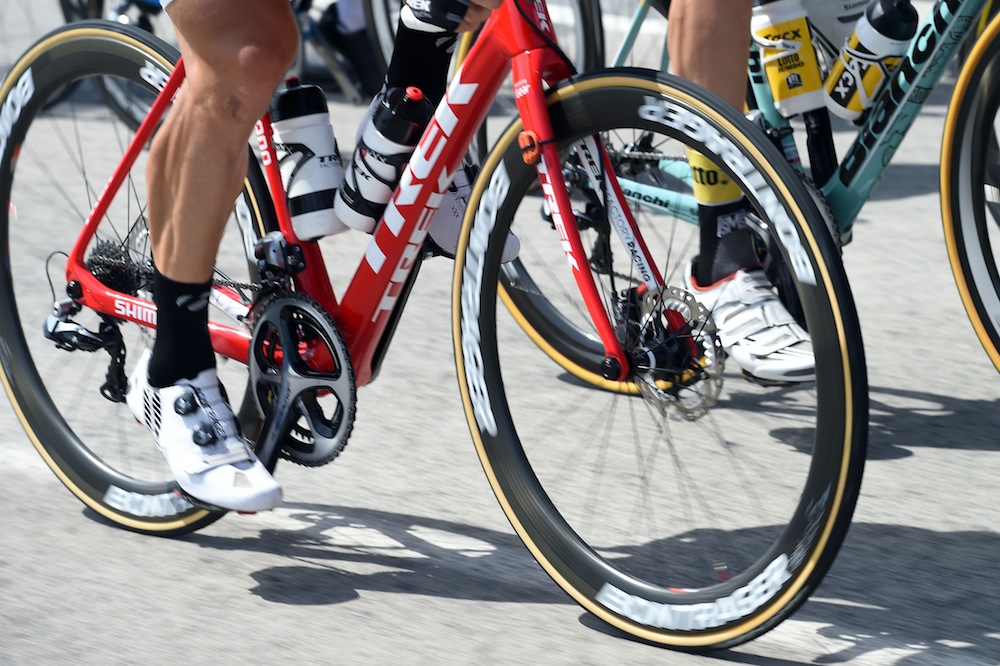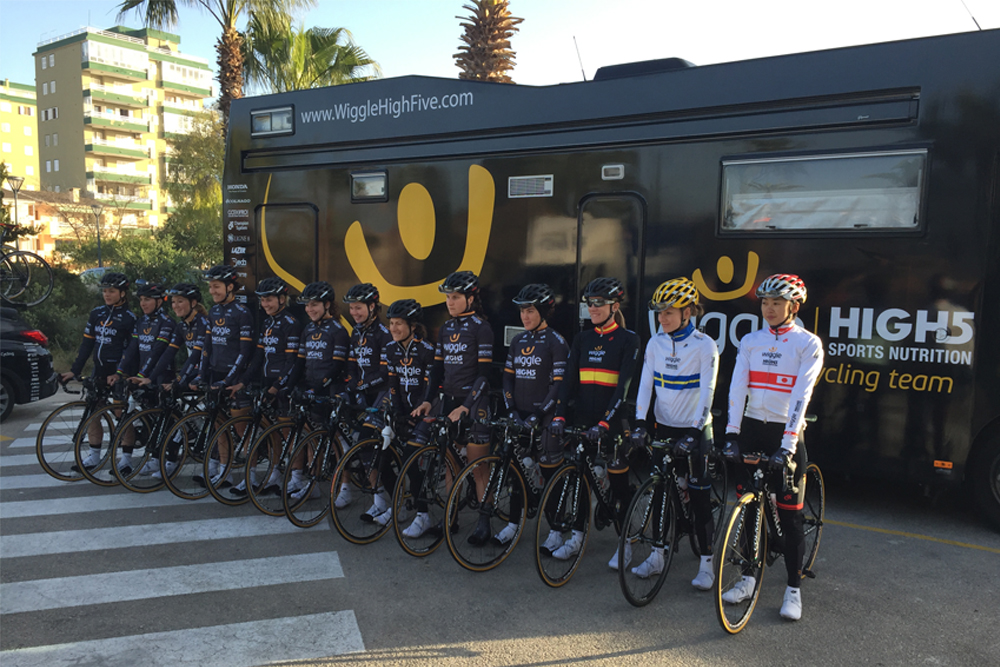'Women's cycling is not really ready for disc brakes'
Disc brakes are rarely out of the headlines, and riders from top women's team Wiggle-High5 had their say at a recent training camp on Mallorca

Markel Irizar's bicycle on stage eight of the 2015 Tour of Spain
(Image credit: Watson)The latest race content, interviews, features, reviews and expert buying guides, direct to your inbox!
You are now subscribed
Your newsletter sign-up was successful
After test races in the 2015 season, the UCI has granted permission to men's professional cycling teams to use the braking system throughout 2016.
Many teams have tried discs, and pro-continental outfit Roompot-Oranje Peloton have opted to go disc only for the coming season.
In the women's peloton, we are yet to see the use of disc brakes and the riders and management of Wiggle-High5 are happy to continue on rim brakes for the foreseeable future.

"Disc brakes has been a big topic within the UCI for women’s cycling for the last six months," said Wiggle-High5 general manager and ex-pro Rochelle Gilmore.
"It’s a huge topic amongst the teams and the directors; my opinion is we don’t want to hold the sport back but to be honest I think women’s cycling’s not really ready for it for a number of reasons."
The Australian continued by pointing out that some component suppliers, such as Campagnolo - which supplies the British team - are not yet ready to provide disc brakes.
What's more, women's cycling still has some constraints that the male pros don't.
The latest race content, interviews, features, reviews and expert buying guides, direct to your inbox!
"In women’s cycling you only have one spares vehicle, you don’t have two like the men have," Gilmore said.
"[...] disc brakes are harder to change and find the right wheel and I think it’s going to cause absolute chaos in races that are very eventful like the Tour of Flanders.
"The fact that some riders will be on disc brakes, with neutral spares it’s really going to be a nightmare because the team cars can be held up for five to 10 minutes sometimes before you can get to your lead rider, and they’ve got to take a wheel from the neutral spares, and I think it’s going to be very hard for neutral spares to deal with the varieties of groupsets, brands and brakes," she concluded.
>>> Fabian Cancellara will shun disc brakes in his final season
Long time pro Emma Johansson, who joined Wiggle for the 2016 season, was also unsure of the suitability of disc brakes in the professional peloton.
"The only thing I can think is that if it’s [disc brakes] going to be in the peloton on the road, I think it needs to be equal for everyone.
"Because once you start mixing...they are so direct and I think the women’s peloton is sort of jumpy anyway and some girls are really fast on the brakes and if you then have a disc brake you might brake a little bit harder than the normal ones."
>>> Everything you need to know about disc brakes
Despite being reluctant to have disc brakes in the peloton at the moment, the Swedish national champion is open to the possibility in the future.
"It’s difficult and I don’t want it at the moment," she said. "But I might say differently within three years."
Young British rider Lucy Garner was of a similar opinion to her teammate that there shouldn't be a mix of braking technologies within a race.
"I think it’s like hard as well when half the peloton is on them and half’s not... it’s quite a big difference. I think you need quite a lot of time as well to get used to it… I’m not too sure about them yet, but we’ll see. On the road anyway. I think for cyclocross and things then it’s pretty good to have them," she said.
The team were speaking at a training-press camp on Mallorca. Wiggle, the world's largest online cycle and tri-sports retailer are proud sponsors of the Wiggle-High5 team.
Jack Elton-Walters hails from the Isle of Wight, and would be quick to tell anyone that it's his favourite place to ride. He has covered a varied range of topics for Cycling Weekly, producing articles focusing on tech, professional racing and cycling culture. He moved on to work for Cyclist Magazine in 2017 where he stayed for four years until going freelance. He now returns to Cycling Weekly from time-to-time to cover racing, review cycling gear and write longer features for print and online.